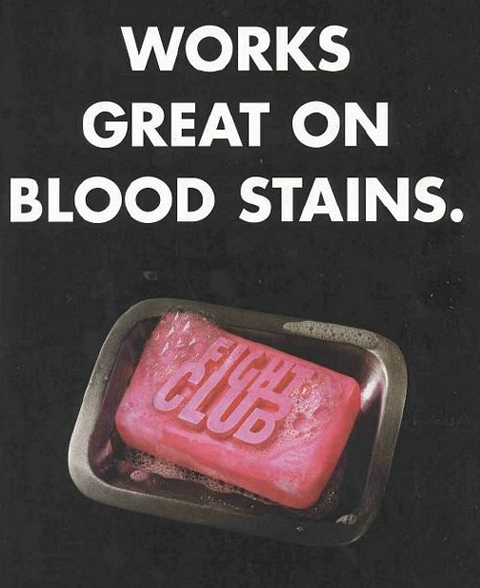A true geek not only memorises every single word his heroes have ever spoken, he adjusts his shopping habits to his favourite fiction. Why buy any old soap when you can buy the soap Brad Pitt used in Fight Club? Why print stuff on boring regular paper when you can get the exact same paper they use in The Office? Once a product is successful enough in fiction, it gets produced for ‘real’ consumers. This is called ‘defictionalisation’ or ‘reversed product placement'; virtual products from books, films and series that get launched as a real-life brand.

Entertainvertising
Omni Consumer Products- an American brand specialist who have positioned themselves using the slogan “The future of yesterday, today”- is specialised in this so-called entertain-vertising. According to them viewers use defictionalised products to feel like they’re part of the universe they see in films, shows or read in books. This way the Homers of this world can rest assured that their Duff really is chilling in the fridge, as they’re watching The Simpsons. It’s all about feeling like a true Springfield citizen.

According to Pete Hottelet of Omni Consumers the future is bright for this kind of operations, especially given the further fragmentation of the markets. He refers to the ‘fourth screen’, which goes one step beyond the mobile world (the ‘third screen’) that a lot of marketeers are focusing on right now.
As seen on…
Omni Consumer Products launched products like Fight Club soap. Fans can now imagine being just as tough as Brad Pitt when they’re taking a shower. Interesting difference to the film: the ‘real’ soap is made from natural components like caffeine and electrolytes and NOT from human fat. Other products made by Omni include “Sex Panther” – the fragrance from Anchor Man – and “Tru Blood”, the vampire’s drink from the show “True Blood”.

The Stay Puft marshmallows from the Ghostbusters film, series and cartoons are also a – tasty – example. The same goes for the incredible, fantastic candy bars and other sweet trinkets from the just as legendary Charlie and the Chocolate Factory book by Roald Dahl. All of this is produced by Nestlé and they’ve even devoted an entire website to it. Not only can you browse through their entire product range, but you can even follow in Charlie and Willy Wonka’s footsteps and take a tour around the factory! Even Bertie Botts Every Flavour Beans from the Harry Potter series are sold in a more non-fictional setting. From rotten egg, soap and rainworm-flavoured jelly beans to the ones that have a hint of earwax and grass: you can taste them all since they were marketed (“Expelliamus Marketingus), ‘for real’.
Corporate defictionalisation
It’s not only the playful products that benefit from ‘defictionalisation’. How about printing paper? Paper company Quill.com launched Dundler Mifflin paper, based on the Dundler Mifflin company from The Office. Good to know: Quill is affiliated with Stapler, which is one of the paper company’s biggest competitors on the show.

When the Simpsons Movie was being promoted in 2007, a few American Seven-Elevens were turned into Kwik-E-Marts, which is where our yellow friends shop in the series. An even bigger example is the Bubba Gump Shrimp Co., an American chain of restaurants, which is based on the chain bearing the same name in the Forrest Gump film. This diner’s interior was an actual film set before becoming a ‘real’ interior. Even now, years after the film was first released, you can still grab a bite in one of the Bubba Gump restaurants. And if you’re not familiar with the film, you’ll just assume it’s another chain founded in the sixties.
Scriptmarketeer
So what’s next? In the future the marketeers will outsmart fiction by working with film and TV-show scriptwriters. Potential commercial success stories from fiction will become a reality at the time of – or even before – their release. The marketing department would attend script meetings, not to provide any feedback to the story, but to brainstorm about the brands that will originate on-set. Because it doesn’t actually matter whether a brand was born on the set: a good brand will take off and live a life of its own, long after the echo of the last director’s ‘Cut!’ has died away.





